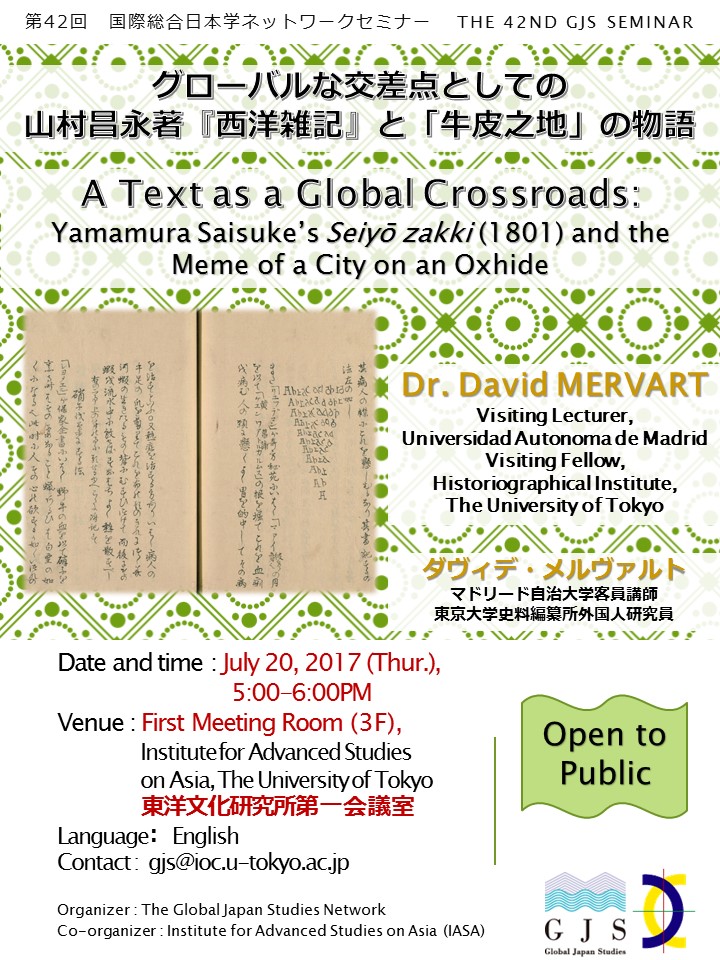News
第42回 東文研・GJS共催セミナー「 グローバルな交差点としての山村昌永著『西洋雑記』と「牛皮之地」の物語」のお知らせ
日時: 2017年7月20日(木)17:00~18:00
会場: 東京大学東洋文化研究所 第一会議室(3階)
発表者:ダヴィデ・メルヴァルト(マドリード自治大学客員講師、東京大学史料編纂所外国人研究員)
使用言語: 英語
発表概要:
The early preoccupation with the shapes and partitioning of the European past in Japan was driven by a mixture of pedantic antiquarianism, amused ethnographic curiosity and a modicum of demand for geopolitical intelligence rather than by the considerably later arrival of the diplomatic gunboats of the western powers in mid-nineteenth century. As the Dutch philological expertise in the course of the eighteenth century gradually became another available tool—alongside the long-established Sinological erudition—for accessing information and generating knowledge about the world, commentators around the archipelago began to read and use not only medical or astronomical manuals of the Occidentals but also their histories.
However, “Rangaku” practitioners still acquired their literacy and erudition from the authoritative body of universal (i.e., “Chinese”) learning. Although in the competitive intellectual marketplace they might brand themselves ‘Rangakusha’—distinct from other “schools”—they continued to use the texts, genres and tools of textual criticism established in the classical (“Chinese”) studies.
A case in point is young Tsuchiura retainer Yamamura Saisuke’s (1770–1807) collection of strange stories from the West, Seiyō zakki (dated 1801). Typical of the genre of early Rangaku translation, this is a complex fabric of Japanese rendering of a digest of several European texts (in Dutch) interspersed with a large number of commentaries culled by the translator from a variety of other European, but also Chinese sources. The resulting product is a sort of crossroads of various textual traditions and transmissions that places a Japanese author at the end of the eighteenth century firmly in a worldwide web of knowledge. This leads to some surprising discoveries that, for example, connect ancient Carthage to contemporary Manila, Batavia and Guangzhou. The case study serves as a reminder that intellectual history of premodern Japan cannot remain constrained to the physical territory of contemporary Japanese state but needs to embrace a dimension that for lack of a better term we may call global.
主催:東京大学国際総合日本学ネットワーク(GJS)
共催:東京大学東洋文化研究所(ISAS)
問い合わせ:gjs[at]ioc.u-tokyo.ac.jp
登録種別:研究会関連
登録日時:TueJul410:06:402017
登録者 :gjs事務局・田川
掲載期間:20170705 - 20170720
当日期間:20170720 - 20170720


